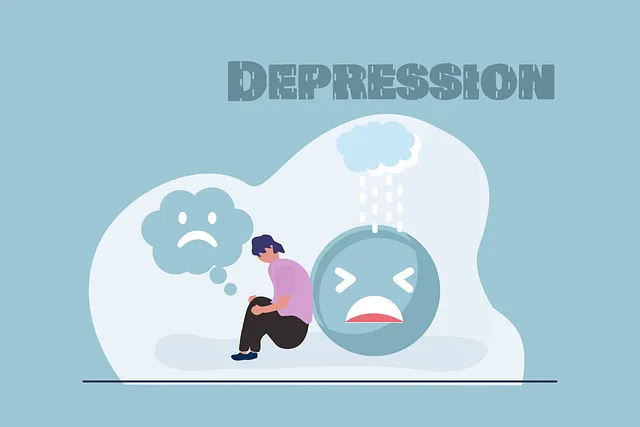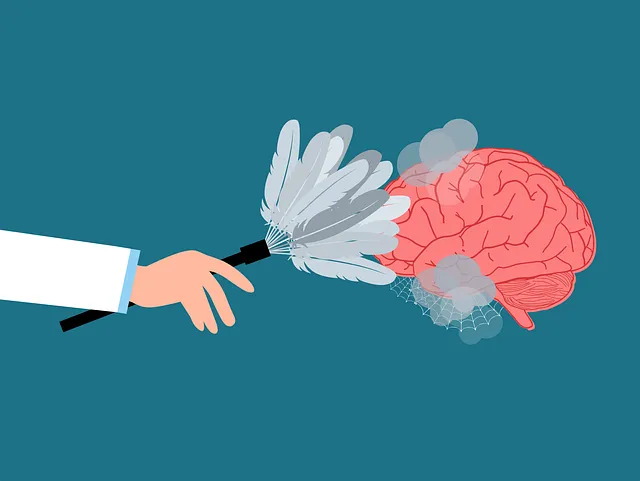Mental health professionals at Boulder Kaiser Permanente (BKP) Behavioral Health Services rely on structured risk assessments based on Mind Over Matter principles, as supported by positive BKP behavioral health services reviews. Their holistic framework integrates evidence-based practices, patient-centered care, and diverse therapeutic modalities to enhance mental healthcare quality and effectiveness. Comprehensive risk assessments consider psychological, medical, and social factors, using validated tools to identify specific risks and develop personalized interventions for improved mood management and self-esteem. Continuous improvement through regular evaluations and compassion cultivation techniques ensures patients receive effective, compassionate care in a supportive environment, leading to better mental health outcomes.
Mental health professionals face unique challenges, demanding robust risk assessment strategies to ensure patient safety. This article delves into the intricacies of risk assessment within mental health practices, using the Boulder Kaiser Permanente Behavioral Health Services Framework as a guide. We explore key components for comprehensive risk assessments, emphasizing continuous improvement and review for optimal patient care. By integrating these principles, professionals can enhance their ability to navigate complex cases and deliver effective treatments. This approach, informed by industry leaders like Boulder Kaiser Permanente behavioral health services reviews, is vital for modern mental health practices.
- Understanding Risk Assessment in Mental Health Practices
- The Boulder Kaiser Permanente Behavioral Health Services Framework
- Key Components of a Comprehensive Risk Assessment
- Continuous Improvement and Review for Optimal Patient Care
Understanding Risk Assessment in Mental Health Practices

Mental health professionals are tasked with helping individuals navigate complex emotional landscapes and often find themselves in high-stakes situations. This is where risk assessment becomes an indispensable tool, enabling practitioners to anticipate potential hazards and ensure safe, effective care. At Boulder Kaiser Permanente behavioral health services, for instance, reviews highlight the importance of structured risk assessments as a foundational element of patient management.
These assessments go beyond simply identifying risks; they guide clinical decision-making, inform treatment plans, and provide a framework for crisis intervention (Crisis Intervention Guidance). By adhering to Mind Over Matter Principles, professionals can facilitate emotional healing processes, mitigate risks, and ultimately foster positive outcomes for their clients.
The Boulder Kaiser Permanente Behavioral Health Services Framework

The Boulder Kaiser Permanente Behavioral Health Services Framework is a comprehensive guide designed to enhance the quality and effectiveness of mental health care. This framework emphasizes evidence-based practices, patient-centered care, and holistic approaches to emotional healing processes. By integrating various therapeutic modalities, the program aims to support individuals in managing their mood and improving self-esteem.
Boulder Kaiser Permanente behavioral health services reviews highlight the success of this framework in fostering a supportive and nurturing environment for mental health professionals. The approach prioritizes not just symptom reduction but also personal growth and resilience. Through regular assessments and tailored interventions, the framework ensures that patients receive individualized care, promoting long-term well-being and enhanced coping strategies.
Key Components of a Comprehensive Risk Assessment

A comprehensive risk assessment for mental health professionals involves several critical components, as outlined by experts at Boulder Kaiser Permanente behavioral health services reviews. Firstly, it should encompass a thorough evaluation of the client’s history and current presentation, including any relevant psychological, medical, or social factors that might impact their well-being. This includes delving into past traumatic experiences, current stressors, substance use, and co-occurring disorders.
Secondly, the assessment must incorporate validated tools and scales to measure specific risks, such as suicidal ideation, self-harm, psychotic symptoms, or anxiety relief needs. Mental health professionals should also consider incorporating Mind Over Matter principles to boost client confidence and resilience. By integrating these key components, practitioners can develop tailored interventions that address individual needs, fostering a safe and supportive environment for healing and growth.
Continuous Improvement and Review for Optimal Patient Care

Mental health professionals at Boulder Kaiser Permanente behavioral health services are committed to continuous improvement and review, a cornerstone of optimal patient care. Regularly evaluating and refining practices allows them to stay abreast of evidence-based approaches and emerging research in mental illness stigma reduction efforts. This proactive approach ensures that patients receive the most effective and compassionate care.
Through comprehensive reviews, professionals assess not only clinical outcomes but also patient satisfaction and self-care practices. By integrating compassion cultivation practices, they foster a supportive environment that encourages open communication and healing. These continuous improvement processes are vital for enhancing services, cultivating a culture of excellence, and ultimately improving mental health outcomes for all patients.
Mental health professionals play a vital role in fostering well-being, but they are not immune to risks. Implementing a robust risk assessment framework, such as the Boulder Kaiser Permanente Behavioral Health Services approach, is essential for ensuring patient safety and delivering optimal care. By understanding key components like history taking, risk factor identification, and safety planning, practitioners can navigate complex situations effectively. Continuous improvement through regular reviews of these assessments enables professionals to adapt to individual needs, enhance treatment outcomes, and ultimately revolutionize mental health services. Incorporating comprehensive risk assessment into practice standards is a game-changer in the field, reflecting a commitment to both patient well-being and professional resilience.






